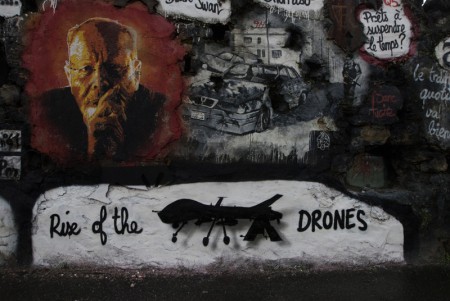
This interview was originally published by E-International Relations on 21 February 2016.
Emmanuel Goffi is a specialist in military ethics and security studies. He is currently a research fellow at the Centre for Defence and Security Studies at the University of Manitoba (UofM), in Winnipeg, Canada, and has been an officer of the French Air Force (captain) for 22 years. He is also an instructor in political science at the Department of Political Studies at UofM and at the International College of Manitoba. Emmanuel lectured in International Relations, the Law of Armed Conflicts, and Ethics at the French Air Force Academy for five years before he was appointed as an analyst and research associate at the Center for Aerospace Strategic Studies in Paris for two years.
Emmanuel Goffi holds a PhD in Political Science/International Relations from the Institut d’Etudes Politiques de Paris-Centre de Recherche Internationales (Science Po-CERI). He is the author of Les armées françaises face à la morale : une réflexion au cœur des conflits modernes (Paris : L’Harmattan, 2011). He co-edited and contributed to an edited volume of more than 40 contributions about drones: Les drones aériens : passé, présent et avenir. Approche globale [Unmanned Aerial Vehicles: past, present, and future. A global approach] (Paris: La Documentation française, coll. Stratégie aérospatiale, 2013). Emmanuel’s current researches focus on the ethical aspects of the dronization and robotization of the battlefield, and on the constructivist approach of security studies.
Where do you see the most exciting research/debates happening in your field?
I would say that the most exciting aspects regarding international relations and security studies are to be found in the philosophical perspective. Morality and ethics are growing concerns in political science. The evolution of conflicts, the rise of new actors, globalization, and new technologies, have slowly led to the obsolescence of international laws. Warfare and laws of armed conflicts are the perfect illustration of this. This is why ethics is becoming more and more important. When you cannot rely on formal legal norms you turn towards informal moral ones.
In this field of moral philosophy, warfare and the new forms of confrontations are endless topics. The use of drones and robots on the battlefield, the changes in the way we approach defense issues, the evolution in the sociology of the military are some of the most thrilling subjects to address. Besides, moral philosophy applied to political science opens doors to an infinite number of perspectives and offers an undreamt playground to free spirits.
